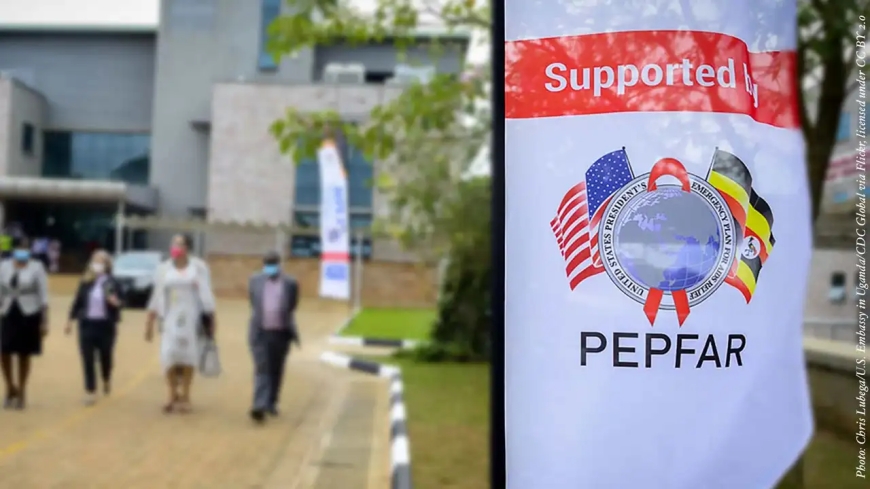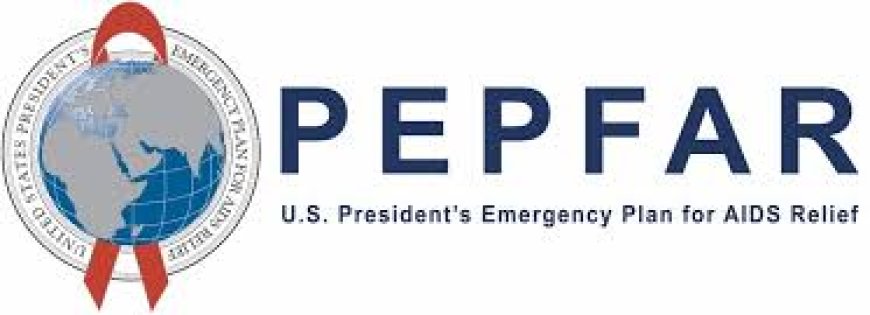The Critical Impact of Stop Work Orders on PEPFAR Programs: An Urgent Call to Action
The U.S. government's stop-work order on PEPFAR programs threatens millions of lives by halting HIV/AIDS relief efforts. This article explores the humanitarian and public health consequences, the response from global health organizations, and the urgent need for policy action.

In recent times, the global health community has been alarmed by the repercussions stemming from the Stop Work Orders imposed on the President’s Emergency Plan for AIDS Relief (PEPFAR) Programs. This initiative, which plays an instrumental role in combating HIV/AIDS across various African nations and other countries, faces an unprecedented halt due to the directives issued by the U.S. Department of State. The ramifications of this halt extend far beyond immediate service suspension, potentially exacerbating a public health crisis that affects millions.
Understanding PEPFAR's Role
PEPFAR has been a cornerstone of health interventions since its inception, providing much-needed resources for HIV prevention, treatment, and care services. In fiscal year 2024 alone, PEPFAR supported over 83 million HIV tests, resulting in thousands of daily diagnoses and treatment initiations. The program has significantly improved access to antiretroviral treatment (ART), with more than 20 million individuals under its care globally. Moreover, the support extends to testing newborns, cervical cancer screenings for women living with HIV, and care for survivors of gender-based violence. Indeed, PEPFAR's multifaceted approach has fostered resilience in healthcare systems, empowering local communities to take ownership of their health.
However, the recent directive to cease all foreign assistance under PEPFAR's mandate means that the ongoing work to combat HIV/AIDS is now critically threatened. Health services that have been diligently built and sustained over years are experiencing disruptions that could dismantle the progress achieved.

Immediate Consequences of the Stop Work Orders
One of the starkest impacts of the Stop Work Orders is the loss of access to ART for over 222,000 individuals who depend on consistent medication for their health. The statistics reveal a shocking reality; daily, there are 222,333 people who pick up new supplies of ART, with 7,445 of those being children under the age of 15. The suspension of these services threatens not only the continuity of care for individuals already receiving treatment but also poses a grave risk of increased mortality and morbidity associated with untreated HIV.
Additionally, pregnant women represent a vulnerable population that is critically affected by this service stoppage. PEPFAR currently provides ART to 679,936 pregnant women, significantly reducing the chances of mother-to-child transmission of HIV. With the suspension, it is projected that 135,987 babies could acquire HIV due to the lack of treatment for their mothers. This figure is compounded by the expected 1,471 new infant HIV infections per day of the work stoppage, underscoring a public health disaster waiting to unfold.
Healthcare Workforce at Risk
The workforce supporting these crucial health services stands at the brink of uncertainty. Approximately 271,229 healthcare workers, including doctors, nurses, laboratory technicians, and community health workers, have been ordered to cease all clinical services. The cessation of their work not only disrupts their livelihoods but also dismantles the healthcare infrastructure, especially in rural and underserved areas where these workers may be the sole healthcare providers.
The complex interplay of healthcare services means that even if some providers are employed by the Ministry of Health, the integrated nature of care delivery signifies that the stoppage of one service could cause a cascade of failures across multiple healthcare functions. For instance, if a single pharmacist is unable to dispense medication, patients may go without essential treatments, increasing the risk of disease progression and complicating treatment regimens.
Long-Term Implications for Public Health
The broader implications of the Stop Work Orders extend beyond immediate service interruptions; they threaten long-term public health gains. With the cessation of prevention and testing services, new HIV infections are predicted to rise sharply. Furthermore, vital programs such as cervical cancer screenings, which screened over 2.6 million women in 2024, are also at risk of suspension. This could result in a surge of untreated cervical cancer cases among women living with HIV, who are already at a heightened risk for the disease.
The PEPFAR programs also play a pivotal role in addressing social determinants of health through initiatives aimed at Orphans and Vulnerable Children. The closure of such programs further exacerbates vulnerability, with 6,458,420 children and adolescents served annually. The loss of these programs means increased risk, neglect, and diminished access to essential health services for those who are already on the margins.
Global Health Community Response
The urgency to address this crisis cannot be overstated. Stakeholders across the global health community, including governments, civil society, and international organizations, must advocate for an immediate resolution to the Stop Work Orders. The overall successes achieved in combating HIV/AIDS not only reflect the effectiveness of programs like PEPFAR but also the collaborative efforts invested in health infrastructure and community empowerment.
Efforts must be made to galvanize resources, support healthcare workers affected by the halt, and ensure continued access to ART and necessary health services. A coordinated response can help mitigate the damages of the stoppage, allowing vulnerable populations to receive the care they desperately need.
Conclusion
As the world grapples with the ongoing ramifications of the Stop Work Orders for PEPFAR Programs, it is imperative that we recognize the stakes involved. The fight against HIV/AIDS is far from over, and a halt in progress poses imminent threats to countless lives. The global health community must unite in advocating for the reinstatement of PEPFAR support, ensuring that health services can resume and that individuals reliant on these programs can access the critical care they need. Time is of the essence, as each day without intervention costs lives and further entrenches public health disparities. The call to action is clear: we must safeguard the health advancements we have collectively strived to achieve, ensuring that no one is left behind in the pursuit of health equity for all.
- How Non Payment Of Your Debt Affect Your Integrity
- Strengthening Fight Against Financial Fraud in Nigeria
- 1.3BN Fraud: Police To Arraign Obanikoro's Son On February 27
- An Abuja-Based Bishop Sentenced To 20 Years Imprisonment For Rape of A Minor
Kindly share this story:
Contact: report@probitasreport.com
Stay informed and ahead of the curve! Follow The ProbitasReport Online News Report on WhatsApp for real-time updates, breaking news, and exclusive content especially when it comes to integrity in business and financial fraud reporting. Don't miss any headline – and follow ProbitasReport on social media platforms @probitasreport
[©2025 ProbitasReport - All Rights Reserved. Reproduction or redistribution requires explicit permission.]
What's Your Reaction?




































































































